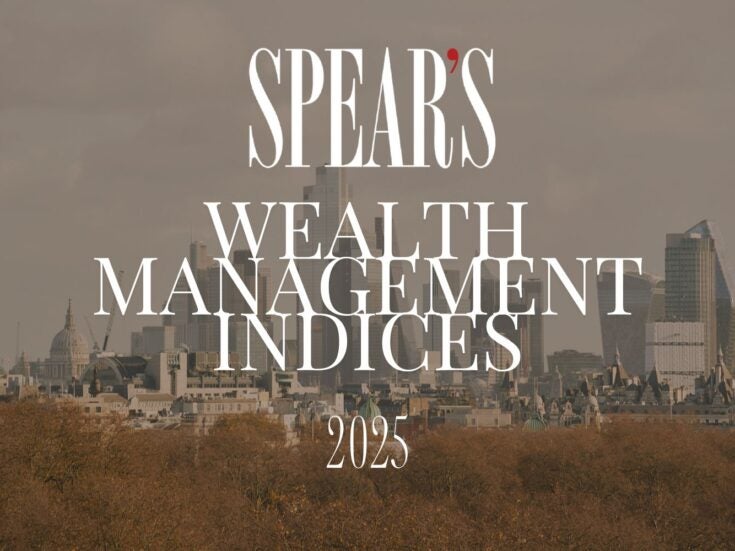
On the Brink
Stephen Hill, Spear’s economics editor, is not usually a gloomy fellow. But his warnings about the financial crisis over the past five years have been acutely prescient, and now, he says, it’s time to worry about an impending Minsky Moment
SPEAR’S HAS CONSISTENTLY warned for the past three years that the dreaded double-dip would appear as the level of debt across the world was just too high everywhere, and that Banking Crisis II was in the works for the same reason. Both predictions are coming horribly true. The world is now in a political crisis because there are no statesmen to be found. All that are on offer are mere politicians who want to have their cake and eat it, just like the bankers who have helped bankrupt the world but refuse to make their banks systemically safer. Both these unloved specimens are in blinkers and have got their snouts stuck firmly in their nosebags, determined to cling on to power and on to their bonuses.
Let’s start with Uncle Sam. The Republican half of Congress wants no tax increases but spending cuts, and the Democrat half wants no spending cuts but tax increases. Both sides are dreaming and opted together to kick the ball into the long grass while they jointly authorised an increase in total debt to $17.1 trillion, which is some 120 per cent of GDP. So Uncle Sam is on a sea of rising debt heading towards the November elections, until the Fiscal Cliff is reached on 1 January 2013, when the president is mandated by the compromise agreement to reverse the Bush tax cuts and slash the budget by 4.7 per cent by cutting government expenditures. It won’t happen, whoever wins the election, lest the US economy slumps, so the president and Congress will just kick Uncle Sam’s can further down the road and into yet more debt.
It’s the same in the EU with their cake-havers-and-eaters. The Germans want to enjoy the benefits of the cheaper euro but don’t want a transfer union where they pass their chunk of cake around; they want austerity, but in a currency union this merely sets up an Irving Fisher Debt-Deflationary spiral in the laggards. Germany and France say they want Greece in the eurozone but insist Greece sticks to the bail-out conditions that are stifling its economy. The PIGS want their snout in the EU trough, too, but don’t want the austerity that comes with it; they want bail-outs but don’t or can’t or won’t repay them.
France wants eurobonds that would mutualise debts, but Germany doesn’t. France teeters on the edge between Germany and the PIGS, but it is already clear that its over-centralised economy cannot keep up with the private Mittelstand-led German juggernaut over the long haul. And they all cling to Nurse, the euro, for fear of something worse, but the problem is the intractability of the euro itself across seventeen divergent economies. So France has voted for growth over austerity, which brings us back to the first problem: no one has any money left, just as Banking Crisis II begins. This crisis is heading for a dangerous, uncontrolled finale.
Countries that run up large debts either declare bankruptcy and renege on them, or inflate them away via the printing press. Some PIGS may opt for the first option, under duress, and the Anglo-Saxons the second, to put off the evil day. Indeed, that is what they have been doing since the crisis began. China’s excesses are being reined in: the politicians talk of a soft landing but the economy heads for a property-geared hard landing. And Japan’s national debt heads for a gob-smacking 240 per cent of GDP.
Only Germany, and perhaps China and some minor economies, are showing fiscal rectitude and are to be admired for their stance, and over many years, too, in Germany’s case. Germany knows well the hell that follows on the other two primrose paths; it is embedded in its DNA. Reneging on debt destroys all creditworthiness and causes immense and immediate pain, whereas once the inflation genie is out of the bottle it destroys savings and pensions, as it heads for prolonged stagflation. The level of debt is just too high everywhere, and still going still higher.
THE DILEMMA ALL the politicians and their central bankers face was epitomised by the contradiction in Mme Christine Lagarde’s IMF address to HM Treasury. She praised the UK’s austerity cuts — of which 80 per cent are still in the post — and said she shivered at what would have happened had they not been implemented, which they mostly haven’t yet. But, she continued, it was now time to go for growth. At least the contradiction in her advice does not sound so stupid in the UK as it has its own currency, and so can — yes — print more money, which will surely stoke up inflation down the road, however much good it does or doesn’t do now. Her advice to the UK begs a question, however, which is global: where does the growth come from if you are already over the top in public and private debt?
What about new President Flanby, named after those puddings that wobble when they come out of their pot? What Hollande should do for growth is boldly lead France and the southern debtor nations out of the eurozone and enjoy a 30 per cent devaluation against the northern creditor nations left in the eurozone. Their economies would begin to revive and take off the next day, as the UK’s did after White Wednesday, when sterling was forcibly ejected from the straitjacket of the ERM, the forerunner of EMU and the debt-deflationary, job-destroying ‘Once-Size-Fits-All’ euro. This won’t happen, needless to say, as he and Lagarde still want to eat their euro-cake, too; it’s an article of faith designed to prevent WW3, but it looks more likely to start civil disobedience across the eurozone.
This crisis was foreseen by the prophetic economist Hyman J Minsky as far back as 1985 in his seminal book Stabilising an Unstable Economy, which went widely unread at the time. Minsky prophesied that the explosion of new financial products and the increasing size of the banks would become so great, as would the instruments of governments and their dominating share of the economy, that they would inevitably become unmanageable and collapse in on each other in a crisis. Minsky was a mathematician, but even he couldn’t begin to work out the arithmetic on that one, just as today there is no maths for quantifying the present danger of contagion in the eurozone or in the global banking system.
Big governments and big banks caused Global Crunch and are destined to destroy themselves and the economy, prophesied Minsky. The way the global economy looks today, the smart money will soon be going on Minsky to be proven right as the politicians are replaced by extremists from the right and especially from the left. The Greek elections are a microcosm in these exceptionally dangerous times. It is all beginning to sound ominously like a demonic rerun of May 1931 and the collapse of the Credit-Anstalt Bank, which led to the Great Depression. The world has truly entered a global political crisis, but the politicians have no ideas, and have long since run out of time.
Read more by Stephen Hill







